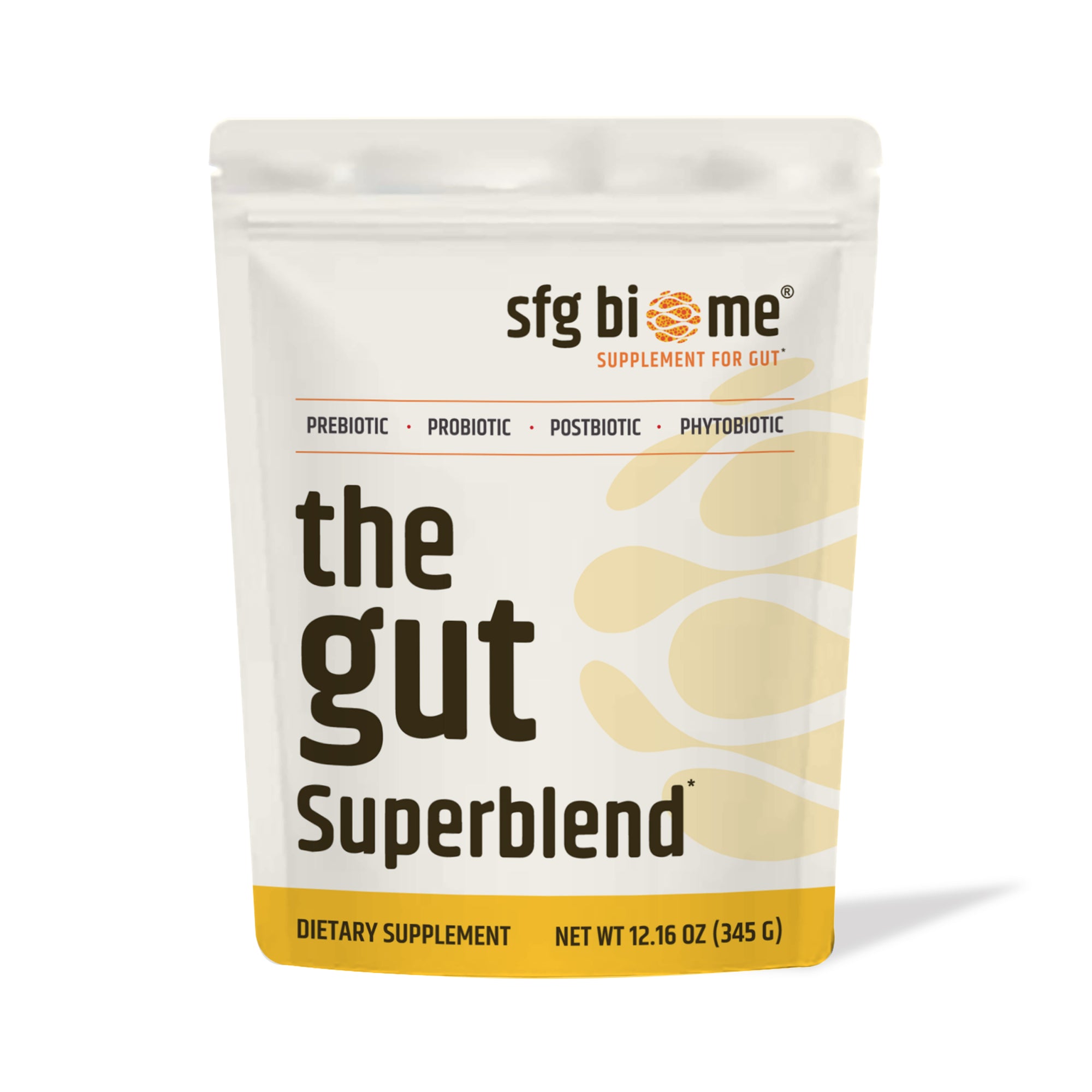What Exactly Are Postbiotics?

Think of your gut as a complex world of tiny microbes—bacteria, yeasts, and other organisms—working around the clock to break down food, support digestion, and keep your system balanced.
When these microbes process food and nutrients, they produce byproducts called postbiotics. These include beneficial compounds like short-chain fatty acids (SCFAs), enzymes, peptides, and vitamins.
In simpler terms:
- • Probiotics are the living bacteria.
- • Prebiotics are their food.
- • Postbiotics are the helpful “results” of all that microbial work.
And these “results” are what scientists are now realizing have powerful effects on your gut—and your overall well-being.
Why Postbiotics Are Gaining Attention
For years, the focus was on probiotics: adding live bacteria to the gut to improve balance. But researchers noticed something fascinating—many of the benefits people associated with probiotics might actually come from the substances those bacteria produce, not the bacteria themselves.
That’s where postbiotics come in. Because they’re non-living, they’re stable, easy to absorb, and can still deliver many of the same benefits—without the challenges of keeping live bacteria alive through digestion or storage.
Researchers suggest that postbiotics:
- • Support healthy digestion by helping maintain the gut lining.
- • Support balanced gut bacteria by creating a favorable environment for beneficial microbes.
- • Ease occasional gut discomfort linked to bloating or irregularity.
- • Support immune health by interacting with gut cells in ways that strengthen the body’s natural health.
How Postbiotics Work in the Body
Every person’s fiber threshold is different, but common signs your gut might need a break include:
- • Persistent bloating or gas after high-fiber meals
- • Abdominal cramping or heaviness
- • Constipation or irregular stools
- • Feeling overly full even after small portions
Why Postbiotics Are the Future of Gut Health
The exciting part about postbiotics is that they take what probiotics do—and make it even more efficient. Since postbiotics don’t need to survive digestion like probiotics do, they’re more stable, more predictable, and easier for the body to use.
This means that future gut health supplements rely more on postbiotic compounds to deliver consistent digestive support. Many experts believe that combining pre-, pro-, and postbiotics together could represent the next generation of complete gut support —where each element plays a unique, synergistic role.
In other words, instead of focusing only on feeding or adding bacteria, we’re now learning how to use their natural byproducts to directly support gut balance and resilience.

How to Support Natural Postbiotic Production

Even if you don’t take a supplement, your body already makes postbiotics when your gut bacteria are happy. To naturally support this process, you can:
- • Eat a fiber-rich diet. Whole grains, vegetables, and fruits feed your gut microbes so they can produce beneficial postbiotics.
- • Stay consistent with balanced meals. Irregular eating patterns can disturb gut rhythm and reduce postbiotic output.
- • Manage stress. Chronic stress can shift gut bacteria balance and limit postbiotic production.
- • Get enough sleep and hydration. Both play a role in keeping digestion regular and your microbiome in check.
The Takeaway

Postbiotics are a reflection of how advanced gut science has become. By focusing not only on the microbes in your gut, but also on the beneficial compounds they create, we can unlock new ways to support digestive comfort, immune balance, and overall well-being.
While research is still evolving, one thing is clear: the future of gut health isn’t just alive—it’s what your microbes leave behind.
FAQs
1. Are postbiotics better than probiotics?
Not necessarily better—but more stable. Since postbiotics aren’t living, they don’t require refrigeration or resistance from stomach acid. They can provide benefits similar to probiotics, especially for gut lining support and comfort.
2. Do I need a postbiotic supplement?
Not everyone needs one, but some people find them helpful for digestive comfort or immune balance. Always talk with your healthcare provider before starting any new supplement to make sure it fits your needs. SFG Biome
3. Are postbiotics safe?
Postbiotics are generally considered safe since they’re non-living and naturally produced in the body. Still, it’s best to choose reputable sources and consult a healthcare professional if you have digestive sensitivities or health conditions.




